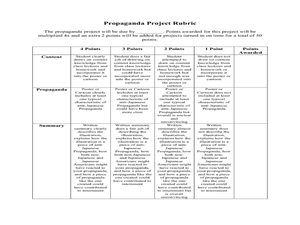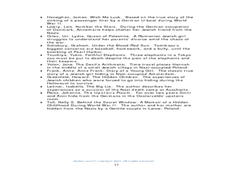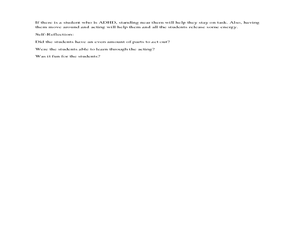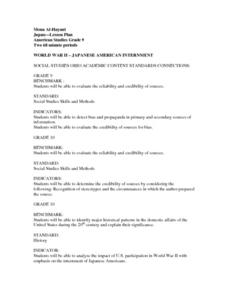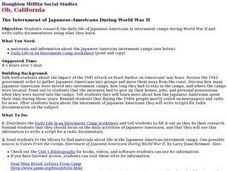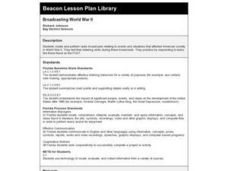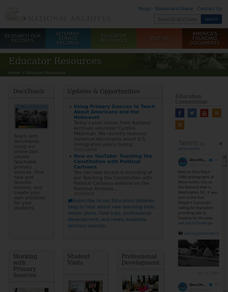Curated OER
Japanese American Internment: Examining Racial Tensions
Young scholars discover how racial tension led to Japanese Internment. In this World War II activity, students analyze political cartoons and posters related to the movement of Japanese-Americans to internment camps in the wake of the...
Curated OER
Book: Super Power: Americans Today
Students, after reading Chapter 1 in the book, "Super Power: Americans Today," analyze the recognition of the quote, "Hunger does not breed reform; it breeds madness and all the ugly distempers that make an ordered life impossible," by...
US House of Representatives
Keeping the Faith: African Americans Return to Congress, 1929–1970
The third lesson in a unit that traces the history of African Americans serving in the US Congress examines the period from 1929 through 1970. After reading a contextual essay that details the few African Americans elected to Congress...
Curated OER
The Children of World War II
Students examine the lives of children during WWII. In this WWII lesson, students investigate the effects of the war on children, what life was like on and off the battlefield and how the geography influenced decisions. Students also...
Curated OER
Introduction to the Cold War
Students examine the domino theory. In this cold war lesson, students watch a video about dominos and then get into groups that represent different nations. Students will then act out a mock simulation of the containment and domino theory.
Curated OER
Calendar Creations About The Civil War
Eighth graders research Civil War events occurring during one month of the year, recording specific events and the dates on which they occurred. They list each event by month, day, and year on a one-month calendar of their own creation.
Curated OER
Across Five Aprils-Civil War Virtual Field Trips
Eighth graders explore the Civil War by reading Irene Hunt's novel, Across Five Aprils. They take virtual field trips to these battle sites and answer questions that guides them in their study of the Civil War.
PBS
President Theodore Roosevelt: Foreign Policy Statesman or Bully?
Can a negative perception of a president's foreign policy harm his or her historical legacy? A project that winds the clock back to the date of Theodore Roosevelt's death puts students at the editorial desk of a fictional newspaper....
Curated OER
Over There with World War 1 Songs
Fourth graders listen to and interpret songs from World War 1. They discuss the importance of radio as a mass media during the time period. They use the Internet or books to answer questions about song lyrics.
Curated OER
Arkansas' Reaction to Draft Resistance During World War II
Learners identify consequences to the resistance of the draft in Arkansas during World War II. They role-play scripts of local board members who were Southern businessmen, farmers; and conscientious objectors, their friends, families, or...
Curated OER
World War II: Japanese-American Internment
Fifth graders read "The Bracelet" by Yoshiko Uchida and use it as a catalyst to discuss the internment of Japanese-Americans during World War II. They debate the morality of the internment, create Venn diagrams and chart important events...
Curated OER
National Museum of the Pacific War
Students examine the role of science and technology in World War II. They discover how some inventions have changed to meet society's need after the war was over. They visit the museum to complete the lesson.
Curated OER
The Internment of Japanese-Americans During World War II
Eleventh graders research the daily life of Japanese-Americans in internment camps during World War II and write radio documentaries using what they learn.
Curated OER
"Dear Ma and Pa" Primary Documents: Letters Home from the War
Pupils read and analyze letters written by a soldier during World War II. They discuss using letters as a primary source of historical information, complete a worksheet, and write a letter to a loved one.
Curated OER
What Would You Do? A Discussion About the Ethics of War
Students examine the process of ethical decision-making during wartime. They read three case studies from World War II, and in small groups discuss, debate, and present their findings to the class.
Curated OER
Total War
Young scholars view a video about the result of using atomic weapons during World War II. They examine how human rights are violated during wartime. They listen as family members come and speak to the class about their experiences...
Curated OER
Who's Who in the Pacific War
Middle schoolers investigate the historical figures of World War II that focuses on the fight in the South Pacific. They conduct research using a wide variety of resources. Students use the information to communicate a report in written...
Curated OER
A New coat for Anna
Second graders participate in a bartering activity. They discuss the problems of bartering. Students read the book "A New Coat for Anna," by Harriet Ziefert. Students discuss the bartering Anna's mother did. They record the trades made...
Curated OER
Broadcasting World War II
Third graders listen to several broadcasts from the WWII era. They research, write and perform simulated radio broadcasts concerning topics related to American society in World War II.
Curated OER
Evolution of Mass Media after 1920
Eleventh graders study the importance of media through American History. In this American History lesson, 11th graders develop teamwork skills discovering information regarding an assigned time period. Students predict and...
Curated OER
Voices at Whisper Bend
Students examine life in Pennsylvania during and after World War II. Using primary source documents, they compare the unity of the United States during World War II and the Iraq War. They also discover how citizens adapt to the war at home.
Curated OER
Memorandum of a Conference with President Eisenhower after Sputnik
Students use the National Archives to research how the United States and the Soviet Union south to maintain its supremacy after World War II.
Curated OER
The End of United States' Occupation of Japan
Ninth graders examine and discuss reasons for end of U.S. occupation of Japan in 1952, locate surrounding Asian countries on map, explore changes to Japan after World War II, and discuss how changes in Japan impacted other countries.
Constitutional Rights Foundation
Refugees: International Law and U.S. Policy
Discover the ways America has opened its borders to international refugees, and the ways other countries have been more or less welcoming, with an informational passage about United States and international policies on refugees....
